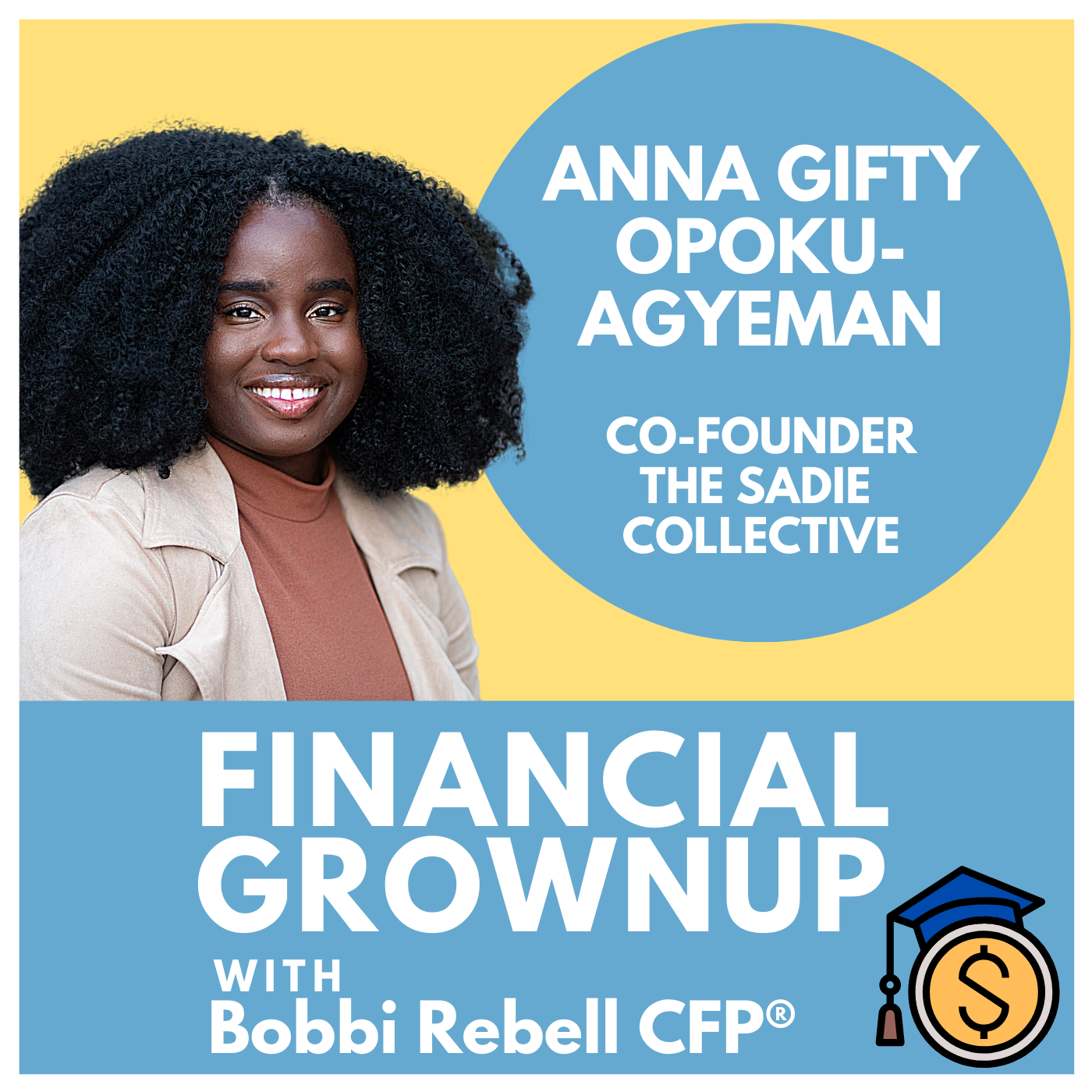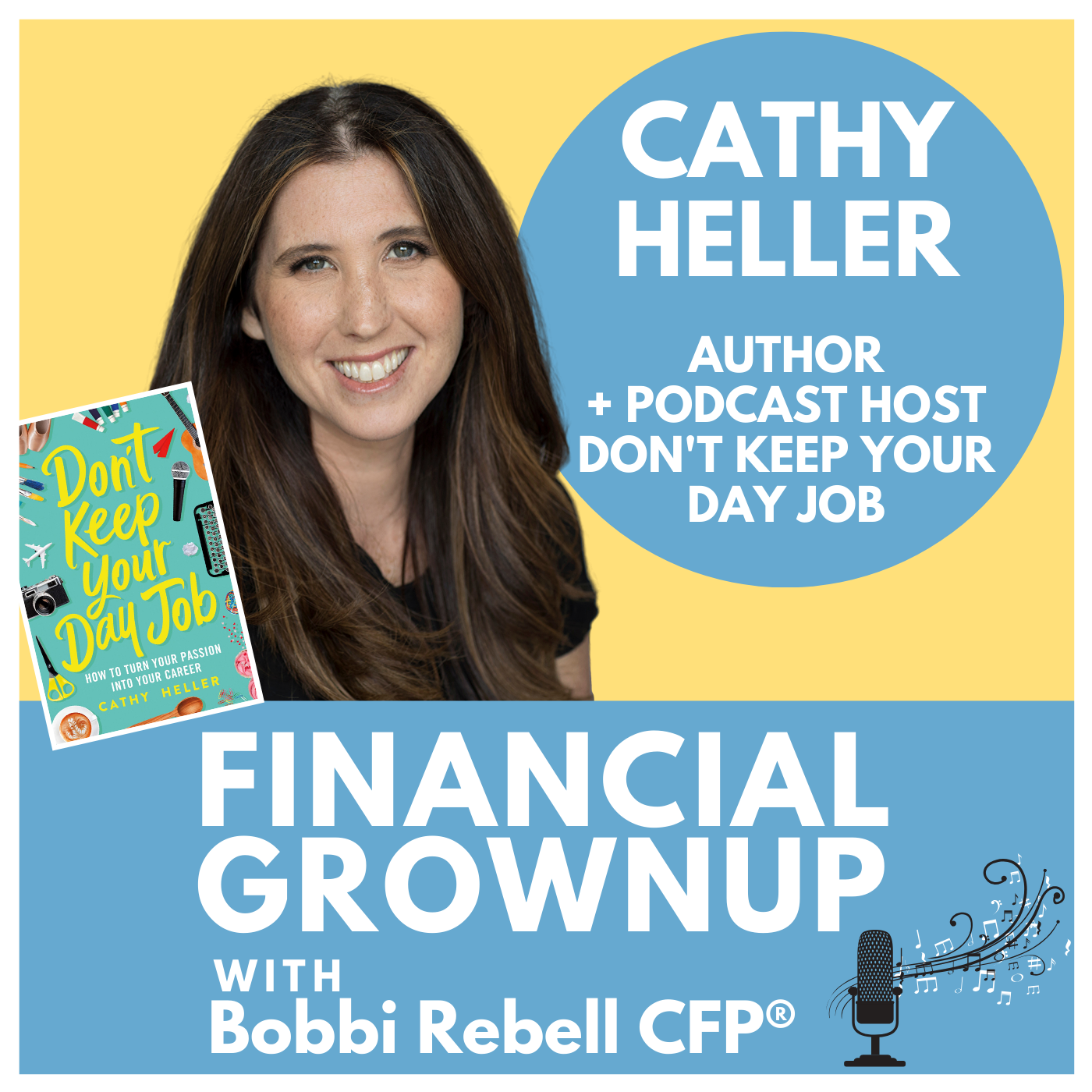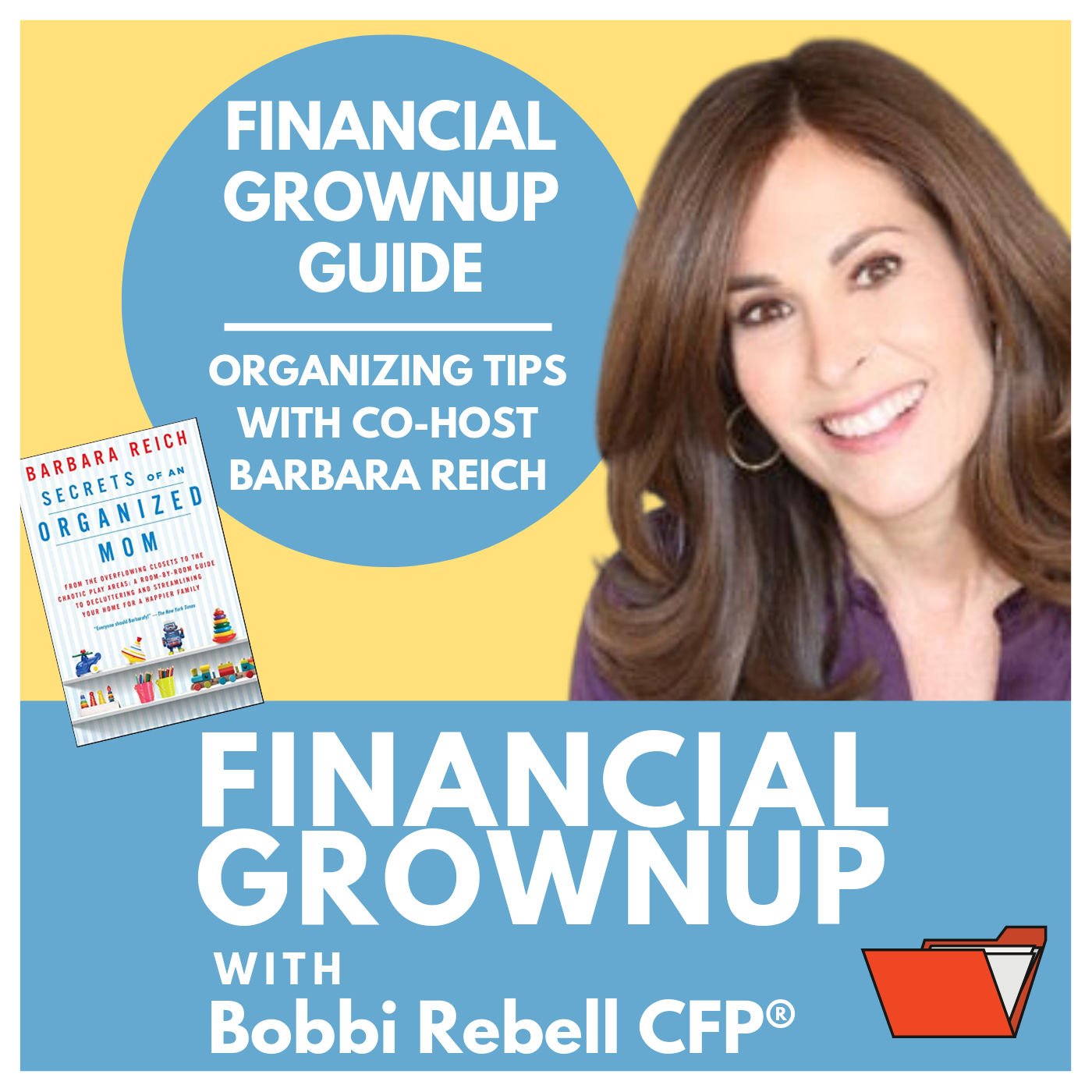On a very special episode, More Than Me founder Tiffany Smiley shares the story of her husband’s brush with death, his subsequent blindness, and how she became a financial grownup because of it. Plus Tiffany's money tip on how to improve your personal finances during the pandemic.
Tiffany’s Money Story:
Tiffany Smiley:
At 23, I was a nurse. I was emergency room nurse. Had my bachelor's in Science and Nursing. I loved helping people ever since I was in kindergarten. When they asked, "What do you want to be when you grow up," I wrote, "I want to be a nurse." It just was in me. And so there was no question out of high school, what I was going to go do. And so I went to school to get my bachelor's in Science. Married my high school sweetheart Scotty, who was a military academy grad. And I always joke that it was the picture of the American dream. He was a newly commissioned officer in the military, and I was a nurse, and our new last name was Smiley. You can't get a better last name than that.
Tiffany Smiley:
But it was the picture of the American dream. Until April 6th of 2005, when I received a phone call at 3:00 AM in the morning. And I was excited, because Scotty would call it different times. But this time it was someone else's voice on the other line. And they said, "I'm so sorry, but Scotty has come face to face with a suicide car bomb." He had been deployed in Iraq. "And there are shrapnel in both of his eyes. And I don't even know if he's going to survive." And this strong leader just broke down and started sobbing on the phone to me. So at 23 years old, my world blew up into a million pieces as well on that day.
Tiffany Smiley:
The next day I resigned from my nursing job, and I took my first one-way flight to meet Scotty out at Walter Reed Army Medical Center in Washington, DC. And I remember getting there and feeling so overwhelmed, and feeling the weight of the situation. And I remember thinking, "You just resigned from your job. Scotty is about to have no job. He's completely blind. The army doesn't want him anymore. And you're 23-24 years old. What are you going to do? How are you going to get out of this?" And it was in that moment that I realized, we really can create the future that we want. But you have to be willing to work hard for it, and believe in that vision more than anyone else's doubt.
Bobbi Rebell:
And you also had to take charge of all the finances.
Tiffany Smiley:
Exactly. I resigned from my nursing job. I walk into this situation, and all of a sudden I'm in charge of all of my finances, all of our finances, my student loan debt, our car payment, our rental. And I remember the stress of just having to figure it all out. The silver lining of it is that there's always people that can help. And I realized that very quickly, that I needed to reach out and not just hold it so close, and not share it. But say, "Hey, I need help with this. I need help." Ask. The answer is always no, unless you ask. And so I, all of a sudden, became in charge of it all, in charge of our future, in charge of making sure that we could put the puzzle pieces back together.
Tiffany Smiley:
My money story is that I went from a nurse. So I resigned for my nursing job. I realized very quickly, that's not going to be something I'm going to go back to. That my new future is going to take what I learned in nursing, and I'm going to have to create something totally different to fit my lifestyle. And so I refused to sign paperwork to retire my husband from the military. That allowed him to stay on active duty, which was a huge benefit to our family. And as he stayed on active duty, he went on and did some really amazing things. He wrote a book, he skydived, climbed Mount Rainier, he went to Duke and got his MBA.
Tiffany Smiley:
And in the process of writing his book, I said, "You're not just going to write this and have it go away." So I started a speaking business. And I always laugh, because I'm biology and science. And then I remember being on the phone with accountants crying like, "What do you mean you want a spreadsheet, and what are these numbers?" But you really can figure it out along the way. I never, in a million years, would have thought a source of income for our family in a way of paying off our student loans, and finding space to put a down payment on a house would come from a speaking business.
“It really comes down to being the champion of your own life.”
Tiffany’s Money Lesson:
Tiffany Smiley:
It really comes to being the champion of your own life. And in whatever that looks like, whether you're peeling yourself off the ground, like I had to at rock bottom. But saying, "I'm going to champion this life and I'm going to be a self learner. I'm going to dig deep," because the answers are out there. And I learned that, even though it was hard starting that business. I had no idea about the speaking world. But I learned so much along the way. And I'm so glad. I look back now and I think, I'm so glad I did that.
Tiffany Smiley:
I've learned so much from other people. I've learned so much about running a business. And I do love my accountants now. I wouldn't survive without them. But had I not forced myself into that uncomfortable area, I don't think we'd be living in the freedom that we have now. And so I would just say, be the champion of your life, and be as self learner. Because there is so much knowledge out there. And if I can do it, anyone can do it. You can save a lot of money by being a self learner. And to me, you save money and time. And time is money. So I would just encourage whoever's listening to this, to think outside the box, to champion your own life, and go out and be a self learner.
“You’ve got to dive into books. There is so much knowledge in books. Reach out of your comfort zone.”
Tiffany’s Money Tip:
Tiffany Smiley:
I think number one is, you've got to dive into books. There's so much knowledge in books. One that I just read that I love was by Sallie Krawcheck, Own It. So I always feel like I would reach out to spaces that I'm not very comfortable with. Like I would say that's probably not a book I would normally buy, but I wanted to learn, and I want it to be better. And so I think, reach out of your comfort zone, and read some books that maybe scare you a little bit, or you wouldn't normally pick up.
Tiffany Smiley:
Also there's resources. And people. I always say that we are each other's greatest asset. And we need to tap into each other a lot more. Because something you learned could be something you pass on to me, and it helps me in my business. And just like we hosted in More Than Me, we had you come on, Bobbi, for our expert coaching call, and help the women in our coaching call. I think discussing it, not being afraid to discuss hard topics or money topics or finance, that's something that helped me along the way. So I would say, reach out, grab some books, look for extra resources that are out there, whether they're membership groups, or of course your podcasts, Bobbi. There is knowledge, so much knowledge out there for us to get ahold of.
Tiffany Smiley:
And something I always love to do was after I'd read a book, I would discuss it with someone. So I wouldn't just hold it here close to me. I would go to someone, whether it was a mentor or a friend or someone else in business, and I would run the ideas by them, see if they'd heard of them, discuss them, and ask questions that I had in my own life. And I think there's a lot of value to that. It's very simple. But I think it's something we could all do, especially right now.
Bobbi Rebell:
You also have some resources that you can share with people. How can they learn more about what you're doing, and about you and your husband?
“We are each others greatest asset and we need to tap into each other more.”
Bobbi’s Financial Grownup Tips:
Financial Grownup Tip #1:
Tiffany advises that we read a book out of our comfort zone, and then talk about it with someone else. I'm going to add to that, and suggest that we reread books we read when we were younger. Our perspectives change so much. Maybe choose something you read in high school, maybe even middle school. I bet you see it a little bit differently.
Financial Grownup Tip #2:
Tiffany talks about learning from other people. But other people can also learn from you. So if you have someone in your life that you can help out, maybe take them under your wings a little bit, consider the time to help them learn from you.
Episode Links:
Tiffany’s website - tiffanysmiley.com
Follow Tiffany!
Instagram - @tiffanysmiley9 + @morethanmemvmt
Twitter - @TiffanySmiley9
Facebook - @TiffanyMaeSmiley + @morethanmemvmt
Some of the links in this post are affiliate links. This means if you click on the link and purchase the item, I will receive an affiliate commission at no extra cost to you. All opinions remain my own.









































